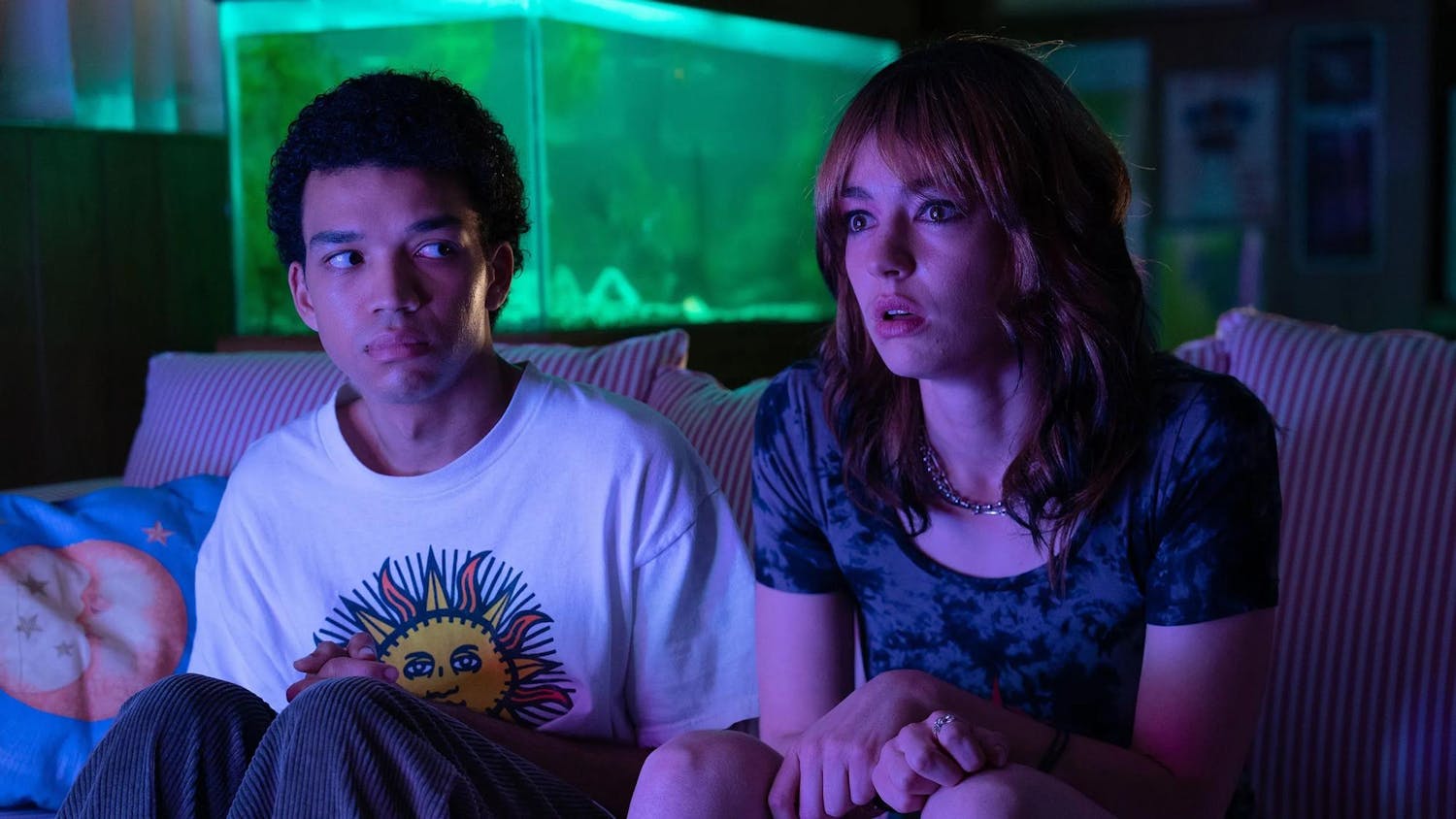Correction appended.
The lights come up and the Prozorov house is quiet. The table is set, waiting for company. The eldest sister is writing a lesson plan for her students, perhaps, or doing the family's bills. The middle sister lounges on the couch reading while the youngest merely stands there, a slight crease in her brow and a troubled expression on her face. She turns 20 today and is happy — but she doesn't know why.
There is an air of boredom, of staleness about the house. These three sisters do this every day — follow the same pattern and see the same faces in their provincial Russian village.They each have dreams of getting out, of returning to their beloved Moscow. Rural life is dull and hopeless in its monotony. It can only be so long before their frustration boils over.
Director Morgan Ritchie '10.5 said he is attempting to do the "craziest" thing that Brown's acting scene has witnessed in a long time. He's putting on a naturalistic play — Anton Chekhov's "Three Sisters," which opened Thursday night at Production Workshop.
Tremendous acting, combined with a simple but charming set and haunting music, creates an atmosphere that transports the viewer to 1900 Russia.
The three-hour play tells the story of the well-to-do Prozorov family and their acquaintances, slowly coming to terms with the changes wrought by modernity.
"I decided to do it because it's one of my favorite plays," Ritchie said. "I love Chekhov and I wanted to do a more naturalist piece — something young actors could really sink their teeth into."
From the opening scene to the closing curtain, "Three Sisters" guarantees audiences a sincere and poignant performance from each cast member.
The three sisters — Olga, Masha and Irina, played by Caroline Straty '10, Lily Garrison '10 and Emma Watson '13, respectively — draw audiences in during the opening scene and never let them go.
Straty's portrayal of Olga, the eldest sister, brings together the perfect combination of strength and warmth as she tries to guide her younger siblings through the trials of life and love. Garrison's Masha is the one audiences love to hate, as lounging about while her town is on fire and having a clandestine affair with the new military officer contribute more to the hate than the love. But wait until her husband appears; her decisions will be more understandable then. And Watson's young and naive Irina appears both powerful and helpless. She is determined to return to Moscow, to work for her living, to be happy. But no matter what she does, she is left dissatisfied.
The three may appear static at first, but their complexity and contradictions keep audience members on the edges of their seats. The characters are full of shades of gray, and it is these shadows that make "Three Sisters" truly come to life as the audience discovers the characters' desires, relationships and motivations.
The costumes complete this effect. Costume designer Alexander Crane '12 relied on pieces from the Army and Navy Store, Salvation Army and Main Stage theater to put together an ensemble that truly captures the time period.
"It's like a scavenger hunt," Crane said, remembering the hours spent searching for dresses, shoes and wedding rings.
Ritchie stressed the characters' multidimensionality. " ‘Three Sisters' is a show that is done a lot," he said. "People get very attached to these characters as being representative of one characteristic, but there's ... more complexity."
Max Posner '11, who plays the sisters' brother Andrey, added that though "Three Sisters" is a play often covered in literature classes, "from an intellectual point of view, acting in this play is useless. I can't play a broken shell of a man." Instead, the actors had to discover aspects about their characters' humanity extending beyond their conventional symbolism, oftentimes glossed over in academia.
"Each of the sisters is perceived as possessing one characteristic," Garrison said. "You have to find the bridge between yourself and your horrendously bitchy character."
At Irina's 20th birthday party, the women meet the new colonel battery commander, Vershinin, played by Evan Smith '11. Once they discover he is from Moscow — the big city — they assail him with questions. Having lived in the city for so long, though, Vershinin appreciates the family's country lifestyle.
Vershinin also has an obsession with the future. He imagines a place that is truly happy, unlike the Russia he knows today. He is an idealist, believing a utopia could truly exist in the next two or three hundred years.
Vershinin's intelligence and charm sweep Masha off her dissatisfied feet. Her husband Kulygin, played by Justin Kuritzkes '12, leaves something to be desired in the intelligence category. Kulygin's comical ignorance allows the audience to forgive even his neglect of Masha's obvious displeasure.
Another unhappy couple is Andrey and his zany, fast-talking and controlling wife, Natasha, played by Jessica Goldschmidt '10.5. The two start off happily in love, but their relationship deteriorates.
"There's so little eye contact with the spouses," Goldschmidt said. "It definitely says something about their relationships."
Posner's Andrey is one of the most complex characters. He wants so badly to accomplish something but cannot escape his life in the village, or get the upper hand in his marriage. Posner does a wonderful job encapsulating his character's simultaneous frustration and resignation.
Irina's love interests — the moody Solyony and the young, affable Baron, played respectively by Gerrit Thurston '13 and Ned Riseley '12 — both deliver strong performances that highlight Irina's despair. Both men may love her, but she cannot commit herself fully to either, for her one true desire is to get to Moscow.
"My soul is like a locked piano," she says, "and the keys are lost."
In effect, all of the characters are in a similar boat. Trapped in this small town where change is simply an illusion and dreams fade with each passing day, the characters can only reiterate that they will return to Moscow. But will they ever?
Jonathan Gordon '13 plays Chebutykin, the doctor who lives with the Prozorovs and acts as the girls' loving grandfather, constantly doting on them. But even he, who is always smiling, has to question this world full of sadness and empty dreams.
Despite the heavy nature of the play, Ritchie was determined to infuse the acts with just the right amount of comic relief. "It was very important to me that we found the humor and the lightness, what you can admire about the characters," he said.
Ritchie's success came from a "super-collaborative effort from top to bottom," he said. "Everyone's important — Brown's the kind of place where you can get eight random people in a room and have them be fantastic."
"This show requires a lot of effort and a lot focus," he added. "We got a great cast and I'm blown away every day."
Due to an editing error, an earlier version of this article gave the incorrect year for costume designer Alexander Crane '12. The Herald regrets the error.




